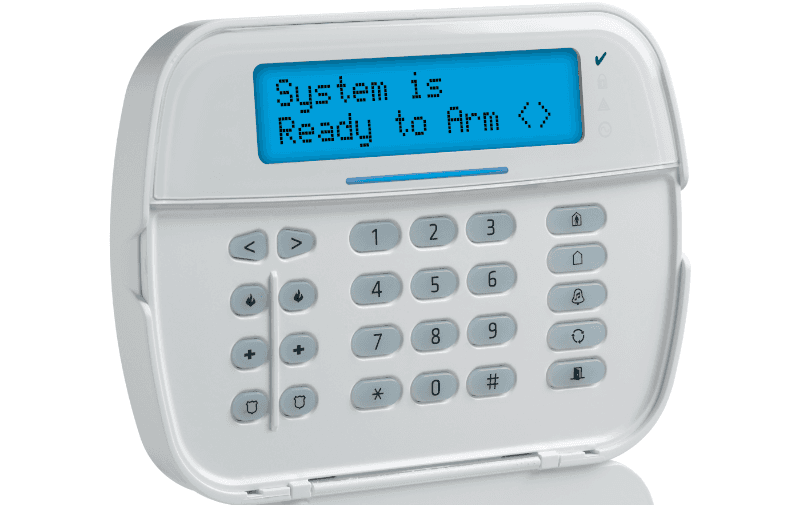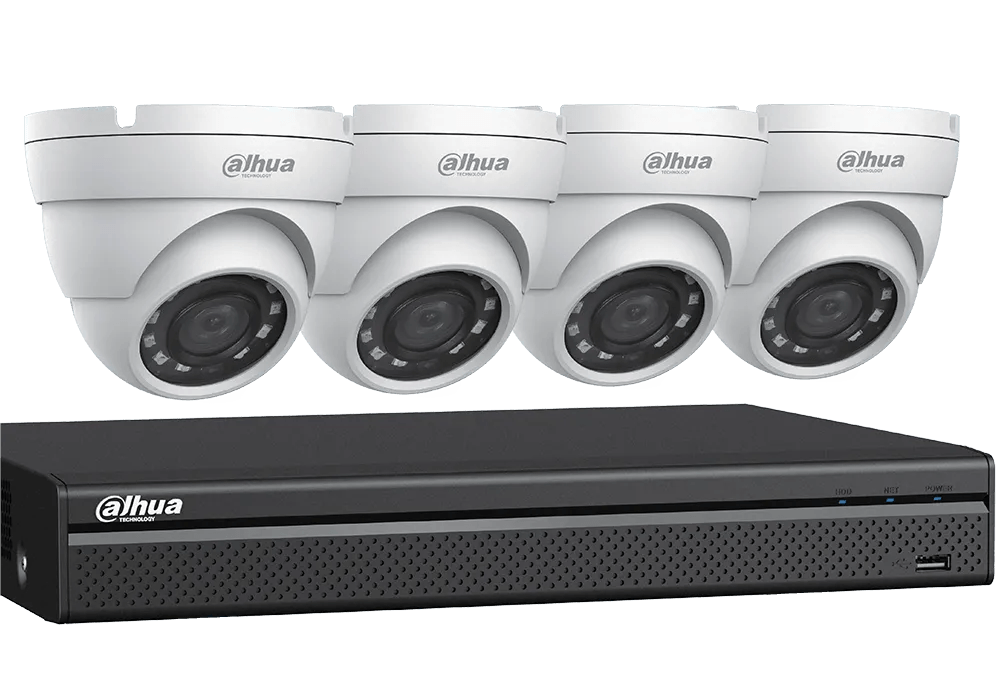FAQs Alarm Systems
All You need to know about Alarms Systems
Q: What is a burglar alarm system?
A: A burglar alarm /intruder alarm is a proven deterrent against burglary and crime. There are
two main types of burglar alarm, these are:
Bells only: - These systems rely on sounders to both deter the burglar and also warn
neighbours of the intrusion. A system will normally have 1 external sounder as a minimum, this
can be added to by having a internal siren as an extra deterrent inside the property, an
additional decoy box on other exterior elevations to provide extra visual deterrent outside or an
extra external sounder could also be used.
Monitored Systems: - These systems have all the features of the ‘bells only’ system with the
addition of being monitored by a central station via a telephone line or cell backup. When the
alarm is triggered it sends a signal to the central station, which then notifies the key
holders and police of the alarm. These systems are a requirement of some contents policies,
normally where this is the case it is also a requirement that an alarm installation company that is
a member of an approved installations organization installs them.
The main components of a Burglar Alarm System are:
Movement Detectors
- to detect the burglar moving through the house
Door and Window
magnetic Contacts - to detect the opening of doors and windows
These are hard-wired or wireless radio-link to a: - Control Panel
- which processes the signals and sounds the bell or siren and/or alerts the
Central monitoring station by telephone or Cell Backup.
Remote Keypad(s) -
linked to the control panel so that the system can be set and unset by a
code in different parts of the property
Bell or Siren - inside the property, out of reach of the intruder, a complete self contained unit
with backup battery that will sound even if there is no power to it.
Q: What are all the different types of detectors that are available?
A:
Passive infrared detector Monitors movement within the property by means of infrared
Passive infrared pet immune detector by means of either lens masking or electronic circuitry
the PIR is made to ignore animals under a certain weight while still monitoring the area.
Passive infrared quad detector Passive infrared detectors are normally dual element meaning
that both infrared elements need to be triggered before sending a signal to the control panel.
A quad detector had two dual elements that all have to be triggered before sending a signal
to the control panel giving a greater immunity to false alarms.
Duel Technology detector
A PIR detector & microwave detector combined,
has all the features of a normal detector with the addition of microwave detection which is not
affected by temperature which makes them very effective for use in situations where there are
large temperature fluctuations like conservatories. Also the microwave must be set correctly as
it can monitor through walls.
Glass break detectors
Detect the braking of all standard glass types and thickness whilst
ignoring non-framed glass and other possible sources of false alarms.
Q: Is there a combined fire/ burglar alarm on the market?
A: Depending on how many smoke alarms you require most of the burglar
alarm panels have the facility to add smoke and heat detectors to the
panel. We supply and install comprehensive range of 12v smoke and heat
detectors to give warning via the burglar alarm system should a fire
break out on the property.
Q: Can alarms cope with pets?
A: Yes, alarms now have pet immune sensors. Our Surveyors will advise
the best way of doing this when we assess your property.
Q: Can alarm systems include panic buttons?
A: Yes, they can include fixed or portable panic buttons, which are invaluable if there is an
intruder in the house.
Q: Can I set the alarm at night?
A: Yes, and we always advise you do. We can program the system to include only those areas
of the premises that you want protected and exclude others for the 'night' setting. It is more
disturbing to be burgled when you are asleep that when you are out of the house!
Q: What is a user code?
A: A user code is a individual PIN (personal identification number) allocated to the alarm
system. This is primarily used to arm and disarm the alarm system. Certain user codes can be
of a higher importance, thus the alarm system allows certain user codes to have the ability to
carry other system procedures i.e. changing codes, omitting zones, arming different areas. Most
systems offer the facility to program more than one user code.
Q: What is my user code?
A: What is my user code is a very common question asked by customers. For obvious security
reasons we will not keep user codes on file. In general if a user code is lost it may be changed
by the master user code (providing you know the master user code).
Q: What is an event log?
A: The event log is the memory in the alarm system. The event log records the activity within the
alarm system. Most event logs will record intruder activation's, system faults, arming &
disarming by user code and the time and date of the event. A typical event log will record in
excess of 200 events, with the exception of some simple domestic control panels. All panels
have a event log.
Q: What is Chime?
A: Chime is a facility that can be assigned to certain zones. On selecting the chime mode to
enable the control panel will emit a sound (bleep or door bell chime) when the chime circuit
detects. This function is normally programmed to the main entrance door. Not all control panel
support this function.
Q: Will my alarm work in a power cut?
A: In general most alarms will work in the event of a power failure. All alarm control panels
incorporate a standby battery which will power the system in the event of a mains electricity
failure. The industry standard is for the battery to power the system for a min of 8 hours. If the
system is armed and there is a power failure the standby battery will hold the alarm in its current
status until the power is restored or a activation is detected. Some commercial systems will not
allow the system to be armed in the event of a mains electricity failure.
Q: Why does my external sounder ring in a power cut?
A: The reasons for the external sounder ringing in the event of a power failure normally
indicates a faulty main control panel standby battery. replacing the battery will normally resolve
this situation. However the external sounder does also incorporate a small standby
battery which enables the unit to sound, therefore providing the control panel battery is OK this
normally indicates a problem with the voltage sensing circuits on the main control panel.
Q: What happened if my alarm goes off?
A: The alarm will ring for a pre-programmed length of time before silencing and re-alarming itself.
All you need to do is enter the code to stop it.
Q: How will I know if my alarm has gone off whilst I've been away?
A: When you return to your home or business and disarm your system the memory light on the
keypad will be on together with the zone that went off.
Q: What happens if my neighbours just ignore my alarm?
A: We can link your alarm to your telephone line so that it calls your mobile, your office, your
relatives, or a central monitoring station. That means someone is always alerted if there is a
problem.
Q: Do I need key holders?
A: By law you are not required to have key holders on audible only systems but you must have
a minimum of two keyholders on communicated / monitored alarms. Common sense indicated it
is a good idea to have keyholders on any system.
Q How long is my alarm guaranteed for?
A: All our alarms are guaranteed for the first year following installation – that includes parts and
labour charges as a result of faulty equipment or workmanship.
Q How do I turn my alarm off?
A: Whenever you re-enter your house, your alarm will bleep. Just enter the code and it will
switch off.
Q: How can I silence my alarm?
A: Silencing your alarm can only be achieved by entering a valid user code. There are several
reasons that could prevent a valid code from being accepted. The most common one is that the
system has been confused by a wrong entry initially, if this is the case it is a good
idea to clear the keypad in accordance with the manufacturer’s recommendation and start again
calmly. However in most circumstance we find that unfortunately it is user error.
Q: Do I have to change any batteries in a wired system?
A: Yes. All our alarms have rechargeable batteries. Your system will show trouble on the keypad
to indict a problem with the system when the battery is low and need to be replaced. Panel
manufactures recommends the life of the butteries’ is good for 3 to 5 years.
For Professional Security System Installation. Call Today 416-250-7398
Looking for an alarm company in the GTA?
We’re The Alarm Companies Toronto Leader in home security and surveillance cameras installation.
Home Alarm Systems in Toronto is a
local resource for security camera installation in Toronto and the surroundings more than 30 years. we have been
installing and servicing local homes and businesses providing access to security systems, security cameras, home invasion alarms, motion detectors, and closed-circuit video systems, as well as advice and content on security cameras and home security.
Blaze Alarms works to provide the best Toronto security services. We offer a wide variety of home and business security tools such as:
Blaze Alarms has been serving customers in and around Toronto since 1990. Blaze Alarms can install a FREE
security system
in your home or place of business. All our alarm systems can be monitored by our monitoring station 24 hour a 7 days a week.
Contact us
today to get your family protected with our Free alarm system offer.



